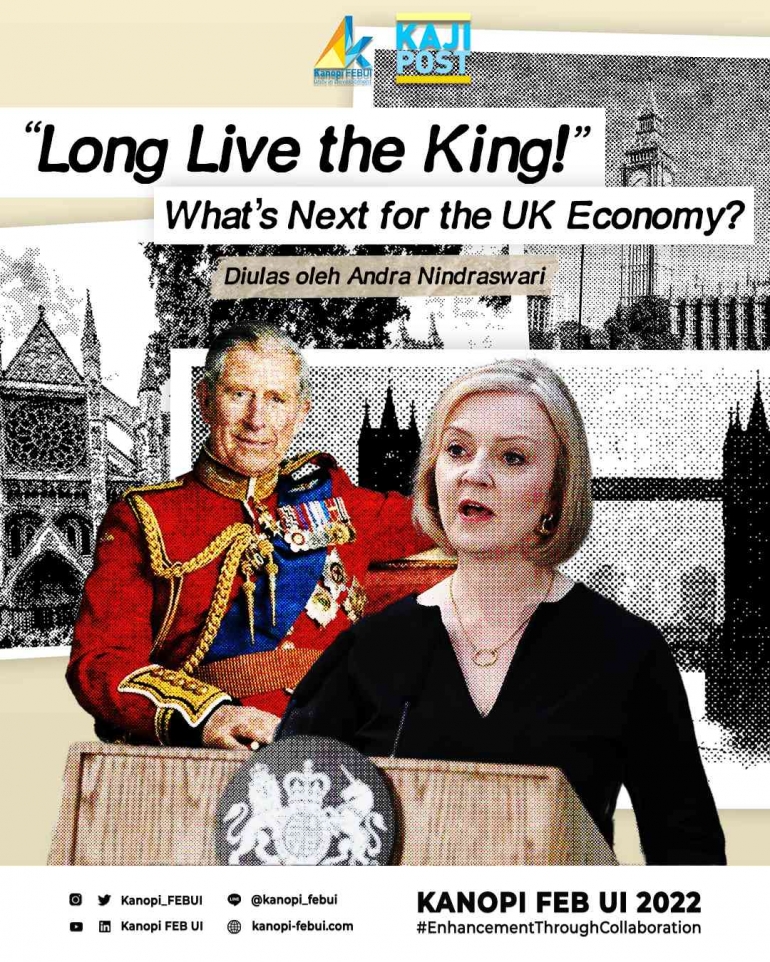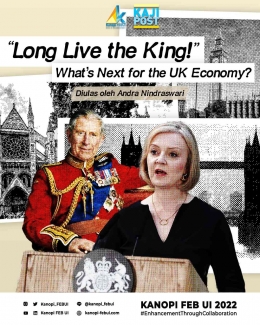Brexit's effect on prices and the labor supply can't be denied. Due to higher import costs and fewer employees entering in the same numbers, businesses in the UK are finding it more expensive to import goods from Europe. According to the think tank UK in a Changing Europe, trade limitations imposed as a result of Brexit led to a 6% increase in food prices in the UK between December 2019 and September 2021, which adds more financial burden on households.
Trickle Down Economics: Intellectual Capture or Sheer Incompetence?
After Boris Johnson was linked to a series of contentious and ethical scandals, Liz Truss was chosen as the country's new prime minister just two days before Queen Elizabeth II passed away. An economy already grappling with a cost-of-living crisis will be burdened by time off from work and activities being postponed as the UK mourns the demise of Her Majesty Queen Elizabeth II. However, it is anticipated that an increase in domestic tourism and foreign visitors will lessen the overall impact.
Two days after taking office, Liz Truss declared a cap on household energy bills at about 2,500 per year for the following two years, with the government covering the gap. On September 23, Kwasi Kwarteng, the UK's new finance minister, unveiled the government's strategy in dealing with the rising cost of living that included sweeping tax cuts and scrapping a cap on bankers' bonuses in the "mini budget".
The plan is based on the trickle-down economics theory. Trickle-down economics is a term used to describe the idea that if high earners receive a pay raise, the whole economy would benefit as their wealth and income spread to all facets of society. President Biden expressed his criticism of this economic strategy in a tweet earlier in the week. In a tweet posted on September 20, Biden expressed his displeasure with trickle-down economics, adding that "it has never worked."
The reduction of income taxes for the highest incomes is a crucial component of the trickle-down effect. It is argued that if high earners see a rise in disposable income, they will raise their spending, which will boost demand, create more jobs, and eventually increase everyone's salaries. Businesses may also decide to spend their greater revenues in raising their output. This theory is supported by the Laffer Curve where it suggests that tax revenues may decrease if tax rates are raised because higher tax rates make individuals less likely to work, and therefore would not boost productivity and spur economic expansion.
Trickle-down theory of economics has drawn a lot of criticism. As lower earnings do not receive a comparable tax decrease, the additional advantages the wealthiest receive might promote income inequality. For example, if the trickle-down economics theory really works, everyone should have benefited from the tax cuts under Presidents Reagan and Bush. It turned out that the poorest fifth's after-tax household income did increase by 6% between 1979 and 2005, but the top fifth's earnings rose by 80% and even the income of the wealthiest 1% tripled. It seems like prosperity trickled up rather than trickled down.
According to critics, such policies disproportionately favor the rich. Truss nonetheless stated on Tuesday that she was prepared to be unpopular if it would help revive the British economy. She told Sky News, "I don't accept this argument that cutting taxes is somehow unfair".
How can the UK get out of this wretched situation?
Aside from whether the trickle-down economics will work or not this time, the UK has to focus on increasing its productivity in order to maintain rising living standards and economic growth. In the UK, employment has been rising steadily since the global financial crisis, but productivity growth has stagnated. However, future economic development will depend on how much each employee is able to produce. Overtime, employers must adapt to the new regulations from Brexit by increasing productivity, such as by upskilling employees or transitioning to less labor-intensive goods and services through technology.
The Bank of England is trying its best to press inflation by making their interest rate higher since December. Higher interest rates help push inflation down by making borrowing more expensive, encouraging saving, and therefore reducing spending. Higher interest rates, however, take time to take effect and come with several risks to be taken into consideration.
This is the current economic condition of the UK that King Charles III inherited from Queen Elizabeth II. From now on, King Charles III will have to take charge of this difficult situation as Head of State and give a sense of stability and continuity with the same presence that his mother did throughout her 70-year reign. The monarch, The Bank of England, and British businesses must work together to achieve the expected target of 2% for inflation - for the welfare of the people.
Diulas oleh: Shakuntala Anjani Nindraswari | Ilmu Ekonomi 2022 | Wakil Kepala Divisi Kajian Kanopi FEB UI 2022







